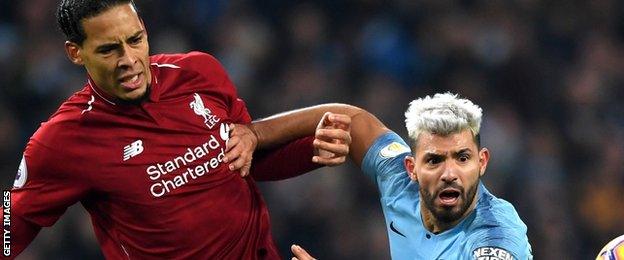Coronavirus: Colchester chairman says EFL clubs may need Premier League help
- Published

Colchester United have not played a game since 7 March
Colchester United chairman Robbie Cowling says the Premier League may need to help support lower league football during the coronavirus crisis.
Cowling believes the £50m English Football League support package, while “helpful”, is “nowhere near enough” to help clubs outside the top flight.
“To really survive and go forward there is going to be help needed from the Premier League or elsewhere,” he said.
"Looking forward it will get really tough on all of us as clubs."
On Tuesday, the EFL - which governs the Championship, League One and League Two and includes 71 member clubs - announced it would provide a £50m short-term relief fund to help with cash-flow issues because of the pandemic.
The fund includes the early release of award payments, and an interest-free loan facility.
'Not a bottomless pit'
“What the EFL has done is really helpful, but their hands are tied too - they are not a bottomless pit,” Cowling told BBC Essex.
“What they have done is advance money we would get in next three months - we are getting that today - so that will get us through this payroll.”
As well as the EFL, the National League may need up to £20m of support to help survive the impact of the outbreak, according to Dagenham managing director Steve Thompson.

Liverpool’s Virgil van Dijk challenges Sergio Aguero of Manchester City
Earlier this week former Premier League manager Brian Laws said Premier League players could help lower league sides by donating a month’s wages.
But sports finance expert Dr Rob Wilson believes a “fairer” way for the richest league in the world to help would be for top-flight clubs to donate 2% of their broadcast income.
The Premier League’s broadcast contracts are worth £9.2bn, external, with Liverpool and Manchester City both receiving more than £150m in TV money last season.
“Even the bottom of the league club will take the thick end of £120m, so that is £2.4m from them and multiply that by 20 clubs and give it to the EFL and other football competitions as a hardship fund,” Wilson, of Sheffield Hallam University, told BBC Sport.
“That would genuinely be affordable and not have any meaningful impact on a Premier League club and their ability to run their operation.
“A little goes a long way if you add it up collectively, and it would be more than £50m.
“It is a once in a generation opportunity to demonstrate that that football league system as entity is a community of clubs and this would almost reset the balance away from this image of having a really greedy Premier League that doesn’t care about anyone else.
“You also have to remember a lot of Premier League clubs have come through the Football League system.”
'Football in a well-funded bubble'
Wilson said having the Premier League take responsibility for the financial health of the game in England would help ease the burden on the government, which this week announced £330bn of help for companies.
“Football is in a well funded bubble and should be able to afford to look after itself,” he continued. “Help like this would help government focus efforts elsewhere.
“In real terms if a struggling League Two club gets support from the Premier League, then that League Two club could then support an organisation that relies on them for business in their local community and that helps with any short-term problem they may face.
“The way the money would flow out of the system would really have a quite profound and lasting impact on the average person on the street, let alone the football club they support.”
The Premier League’s capacity to help, however, may depend on the season continuing, as the cancellation of the rest of the campaign would cost them an estimated £1.25bn, external in TV, matchday and sponsorship income.
Fausto Zanetton, a former investment banker who is co-founder of sports investment and advisory company Tifosy, said the “willingness” to see the season completed will “mitigate losses” for Premier League sides.
Having worked with a number of clubs in the EFL, including Norwich before they were promoted, Zanetton said the £50m fund already offered to clubs is “a small amount, but a start”.
He told BBC Sport: “Knowing some of these clubs quite well, it just doesn’t cut it. This is going to be disruption for a significant period of time.”
Like Wilson, he feels the Premier League can help with the financial fallout of the pandemic.
“A solution needs to be found betwen the Premier League and the broadcasters is a way,” Zanetton added.
“The government has other things to worry about, rather than bailing out football clubs where there are players that make millions - there will be other priorities there and I don’t think it will go down with the public.
“There is a lot of pressure on the NHS, there will be a focus on making sure that a lot of the funds are going to go to healthcare and ensuring that small businesses, people on the lower end of the income scale will come through this crisis as good as possible.
"A headline like ‘Government bails out a football club or provides x hundreds of millions to football’ would not be good.
“It has to be coordinated at Premier League level, if there is sufficient money to go around, and not at a club-by-club level because all these clubs will be focused on their own individual situation right now.”